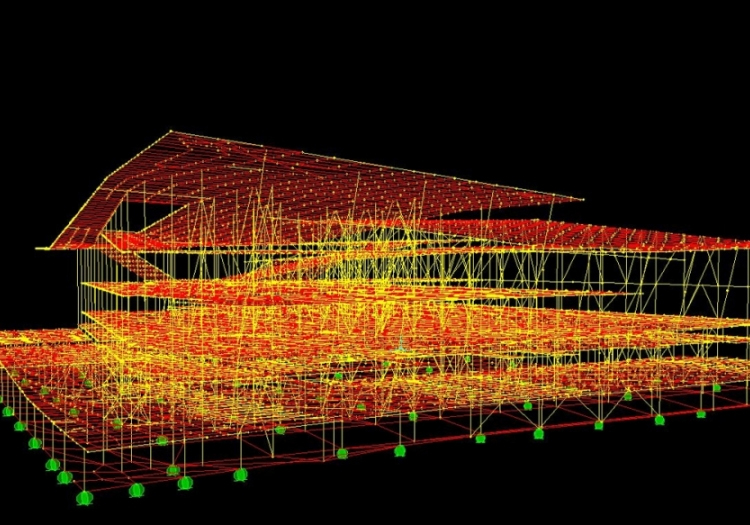
What is Dynamic Thermal Simulation?
Also referred to as ‘Thermal Modelling’ by building designers, Dynamic Thermal Simulation (DTS) is a method used to predict the way a building responds when subject to external environmental factors. All of the necessary parameters of design like occupancy patterns, internal heat gains and building fabric characteristics that affect the result are taken into consideration in a 3D model with the goals of reducing whole life operational costs and ensuring the comfort and wellbeing of the building users.
At Varming Consulting Engineers, our specialist sustainable design team use modelling software to achieve this goal, which is a specific part of Building Information Modelling (BIM) that is concerned with thermal performance.
Thermal Simulation in Practice
Thermal simulation is a method we have used many times on many projects, one of which was the Analog Devices Building at the University of Limerick. In 2015, we were instructed to design the m & e services installations for the 7,650m2 area, which included offices, classrooms and laboratories, as well as student accommodation.
The approach was used as part of a holistic strategy that also included:
- Daylight simulation and analysis
- A simulation of computational fluid dynamics (CFD)
- Laboratory ventilation system energy analysis
- A total Building Energy Rating (BER) assessment
- Analysis of ventilation flow rates
All of these techniques were employed to allow the project to achieve a BREEAM Excellent rating, which is an independent third party building performance certification from the world’s foremost assessors of sustainable construction and one that is a leading mark of quality in design in the built environment.
If you would like to find out more about techniques like dynamic thermal simulation and other examples of excellence in building services engineering, visit our website www.varming.ie or call us on 01 4872300 for a chat with one of our expert team.
We are ready to help you achieve your construction project objectives.

